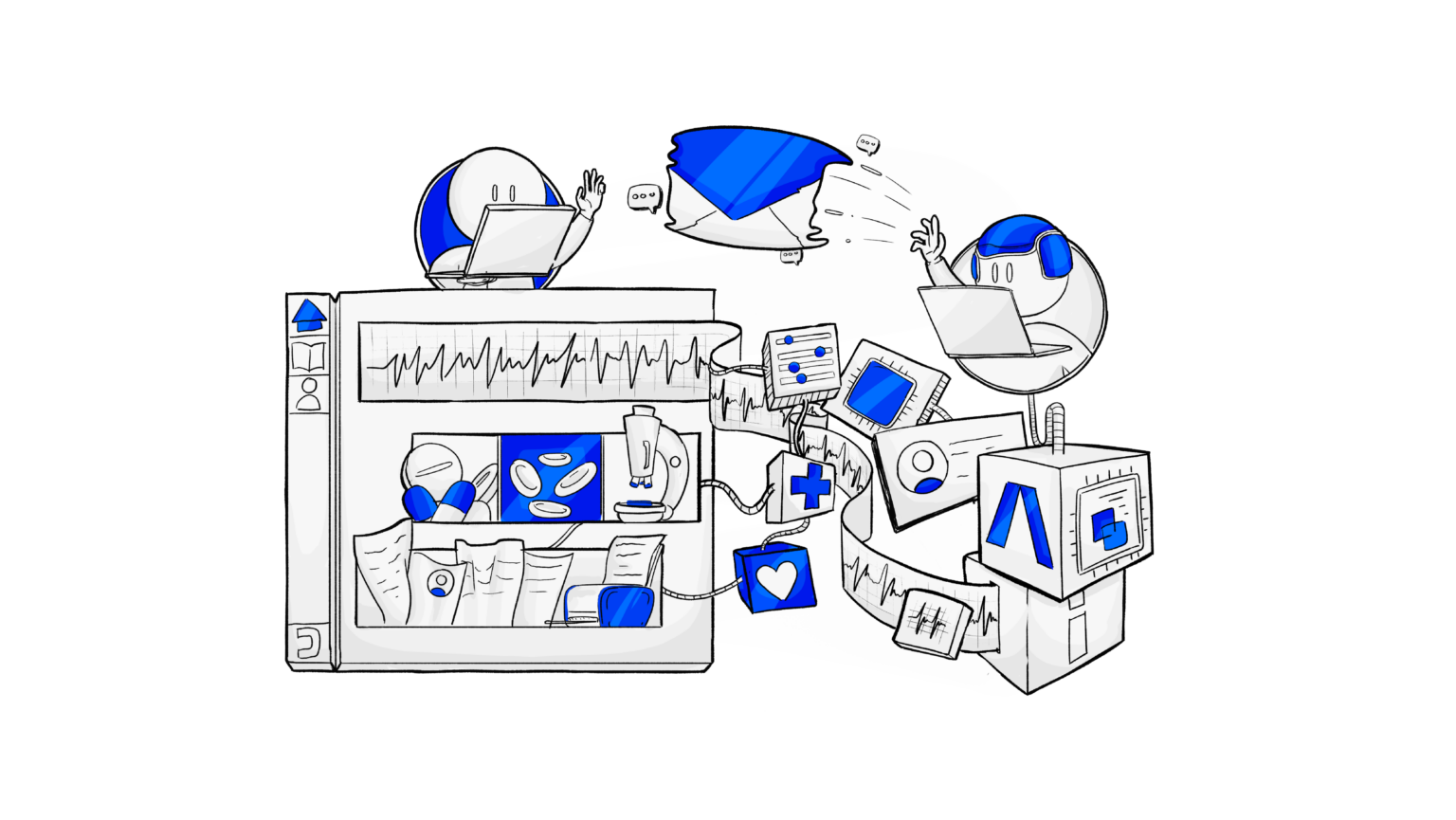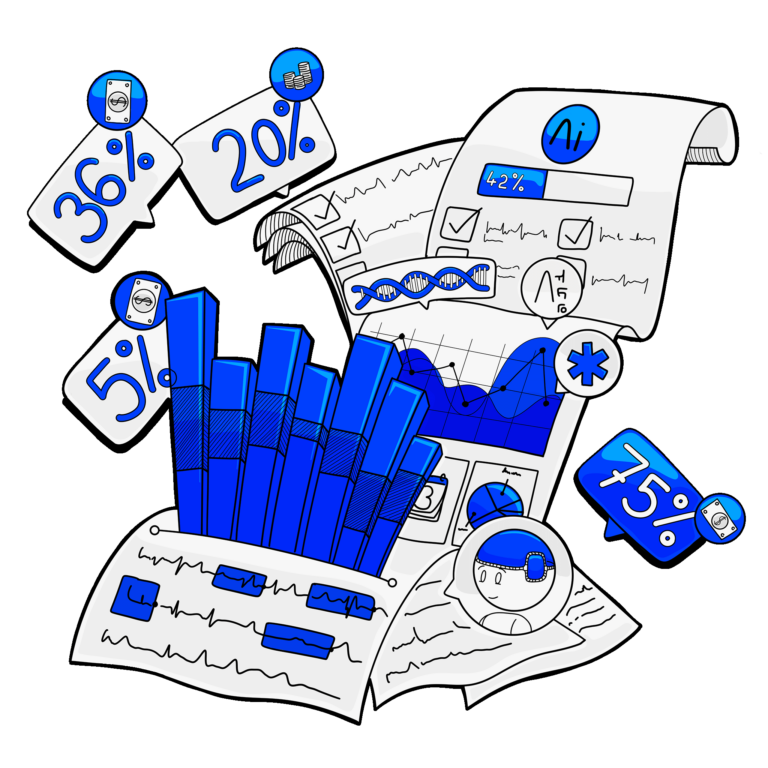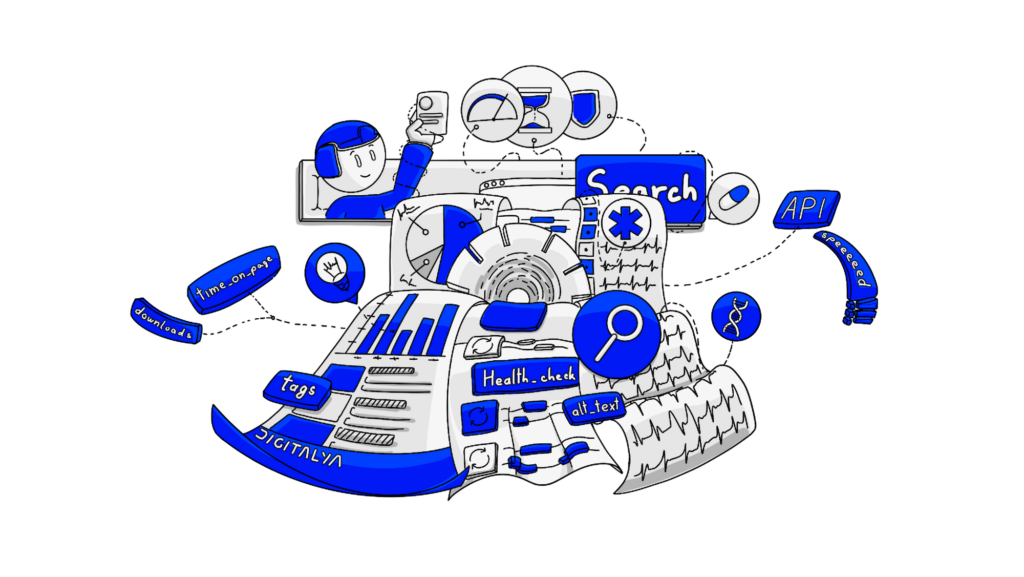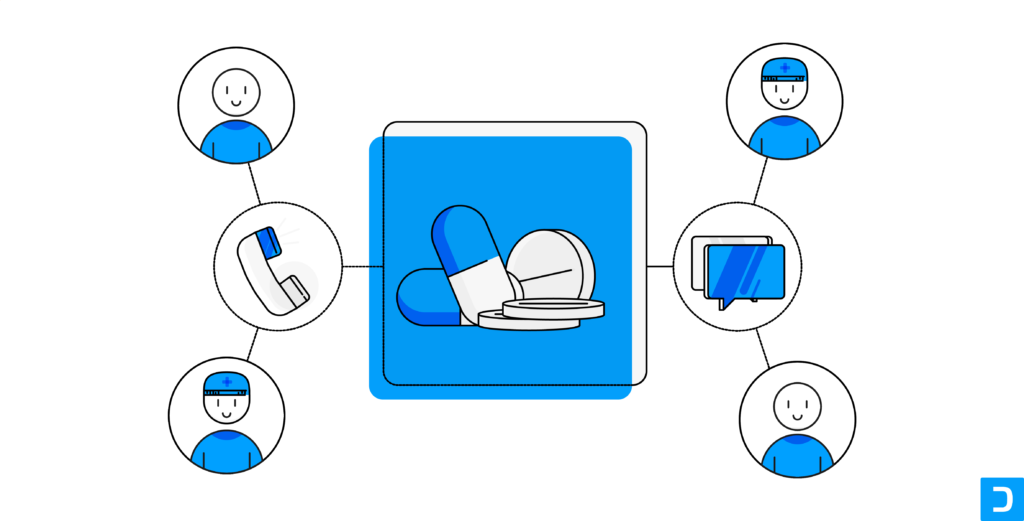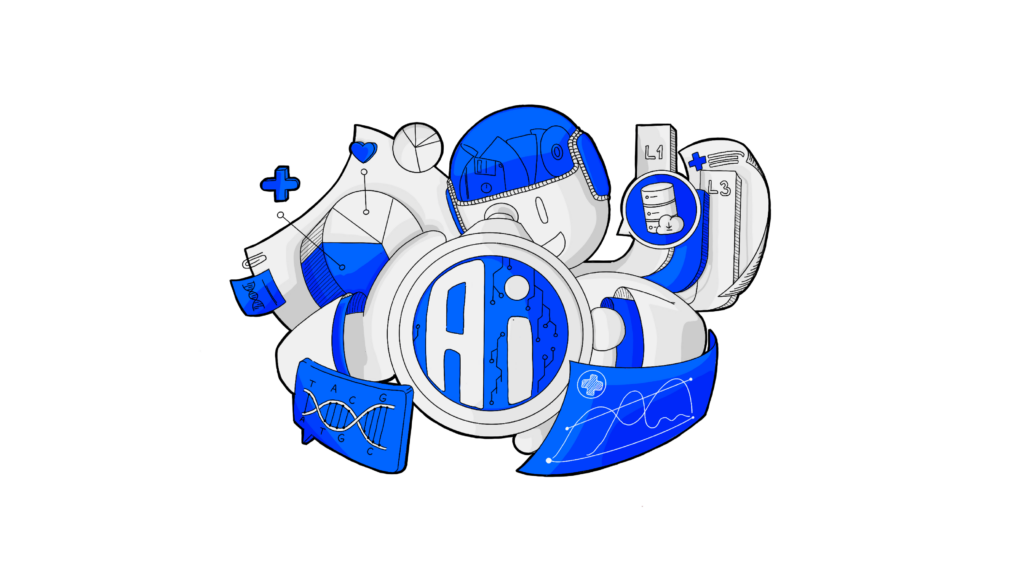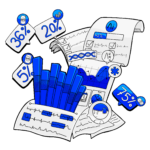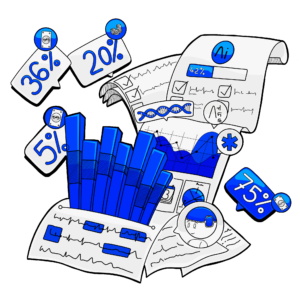1. Introduction
1.1. The need for innovation in nursing training
Nursing is one of the most dynamic fields in healthcare. In most healthcare systems, 80% of primary healthcare is provided by nurses. The nursing profession requires constant updates in knowledge, education resources, and skills to meet evolving patient needs.
Critical thinking is one of the most essential abilities a health nurse practitioner develops, as they often need to make decisions and adapt on the spot based on each patient’s reactions and physiology. As medical science advances, the complexity of health care increases, placing more demands on nurses.
Traditional training methods, while foundational, often struggle to keep pace with these changes, such as embracing AI in healthcare. There’s a growing need for innovative solutions that can enhance the learning experience for nurses, ensuring they are well-equipped to deliver high-quality care. It takes an innovative approach to bridge research and practice. According to a 2021 study on cancer research, it appears that it will take 15 years to make all that knowledge applicable and start seeing positive patient outcomes.
Artificial intelligence platforms for nurse education may be the answer to fast-track nursing continuing learning. AI has the potential to offer a transformative approach, addressing the limitations of conventional training methods. By incorporating artificial intelligence (AI), these platforms can provide more personalized, interactive, and efficient learning experiences. This innovation is crucial in a field where practical skills and up-to-date knowledge are vital.
1.2. How AI can empower pharma engagement in nurse education
The pharmaceutical industry plays a pivotal role in healthcare, not only through the development of medications but also by supporting the education of healthcare professionals (HCPs), including nurses. AI presents a unique opportunity for pharma companies to enhance their HCP engagement, nurses included, by providing advanced educational tools tailored to this audience’s specific needs.
By leveraging AI in nurse education platforms, pharma companies can ensure that nurses receive the most relevant and up-to-date information, ultimately leading to better patient outcomes.
AI-driven platforms can analyze individual learning patterns, offer real-time feedback, and simulate clinical scenarios, all contributing to a more robust educational experience.
For pharma companies, this means they can position themselves as leaders in the healthcare education space, providing value beyond their products and fostering stronger relationships with the nursing community by influencing nursing education in an unprecedented manner.
1.3. The role of the pharma industry in nurse education
Pharmaceutical care is the common ground where pharma companies, doctors, nurses, patients, and healthcare system administrators meet. It is an “interprofessional” area where responsibility and the power to make a difference are divided between all players.
Pharmaceutical companies have long been involved in educating healthcare professionals about their products, from the mechanisms of action to potential side effects and patient management strategies. As the healthcare landscape becomes more complex, there is an increasing need for these companies to expand their role in nurse education. As they move forward with patient engagement by introducing patient portals, AI in nurse education platforms is the next step.
By providing cutting-edge tools for nursing courses that facilitate personalized learning and improve clinical skills, pharma companies can ensure that their products are used effectively and safely. This benefits the nurses and their patients and strengthens the relationship between pharma companies and the healthcare community.
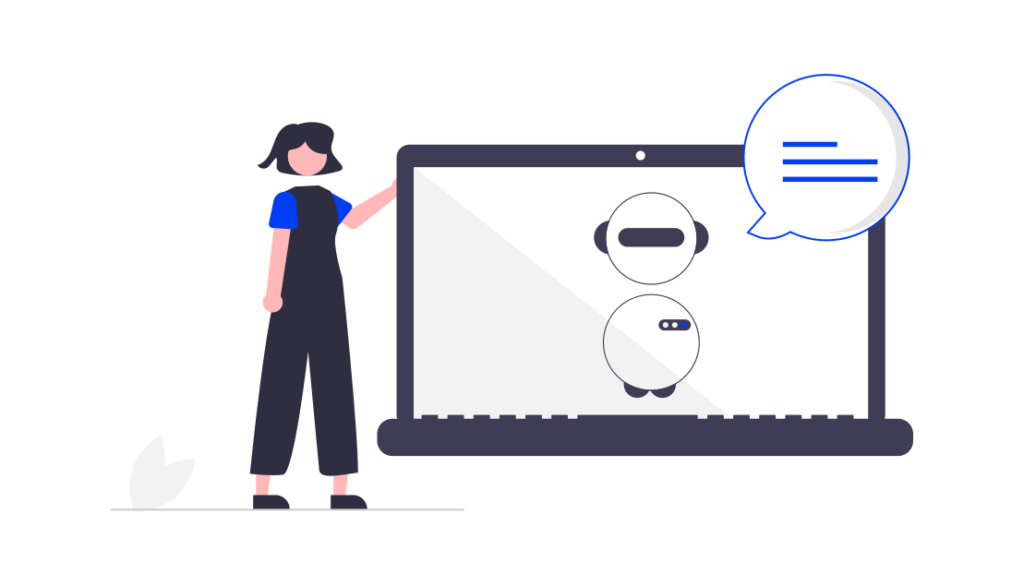
2. Benefits of AI-powered nurse education platforms
2.1 Enhanced learning personalization for nurses
2.1.1 Tailoring content to specific needs and learning styles
A nurse education platform incorporating AI is the ability to tailor educational content to meet the specific needs of individual learners. Recent developments in education have proved the efficiency of adapting how information is delivered to the recipient’s learning style and needs. Let’s also not forget that a nurse practitioner is a full-time working person with very little spare time. Traditional one-size-fits-all approaches to education often fail to address the diverse knowledge levels, not to mention time availability. Generative AI can adjust the content based on its data analysis of how nurses interact with the platform, identifying areas where they may struggle.
For instance, an AI-powered platform might recognize that a nurse is struggling with a particular aspect of pharmacology. The system can then offer additional resources, such as video tutorials, quizzes, or articles, tailored to address that specific gap in knowledge. Furthermore, AI in nursing education can adapt the delivery style based on the nurse’s learning preferences, whether they are more visual, auditory, or kinesthetic learners or if they seek education in practical skills.
2.1.2 Optimizing training based on individual performance
Beyond tailoring content, AI can optimize the entire training experience in nursing programs by continuously monitoring and analyzing a nurse’s performance. This includes tracking progress over time, identifying trends in learning, and predicting future needs based on past behavior.
For example, if a nurse consistently excels in theoretical knowledge but struggles with practical application, the platform can provide more simulation-based learning opportunities. These simulations can mimic real-life scenarios, allowing nurses to practice and refine their skills in a safe, controlled environment. Additionally, AI in nursing can offer predictive analytics, suggesting areas for future study based on the nurse’s ongoing performance, ensuring continuous improvement.
2.2 Gamification and interactive learning experiences
2.2.1 Using AI for immersive simulations and case studies
Gamification is a method embraced by many apps, including educational platforms. Duolingo is one of the best-known examples, with its “fun and effective” approach to learning a new language. It has gained traction quickly, and it continues to attract new users. While learning a foreign language may fall on the more “entertaining” side of education, there is no reason not to consider a gamification approach in nursing.
AI is transforming gamification, too, by creating immersive simulations and interactive case studies that mirror real-world clinical situations. Imagine that these AI-driven simulations can adapt to the nurse’s actions in real time, providing a dynamic and engaging learning experience that can even be deployed in nursing schools.
For instance, a simulation of a clinical experience might involve a virtual patient presenting with symptoms of a common condition. Natural language processing machines can simulate how a patient could describe his symptoms. The nurse must assess the patient, make clinical decisions, and administer treatment. The AI system can respond to the nurse’s decisions, presenting new challenges or providing feedback based on their actions. This level of interactivity enhances engagement and helps nurses develop critical thinking and decision-making skills, which are crucial in clinical practice.
2.2.2 Promoting active learning and knowledge retention
First of all, what is active learning? As opposed to the more traditional passive learning, where the student is the passive recipient of knowledge from an expert, active learning represents a set of strategies to engage students: discussions, brainstorming, quizzes, reflection, case studies, role-playing, etc. These strategies put students in various situations where they can apply “on the spot” the knowledge presented to them. Combining theory and practice strengthens the neural pathways that are created. Information is associated with an action, which leads to better knowledge retention.
Education technology has evolved such that an artificially intelligent program can easily generate interactive learning experiences. AI-powered platforms for nurse practice and learning can include features such as quizzes, interactive tutorials, and real-time feedback to keep nurses engaged and motivated.
2.3 Building clinical reasoning skills through AI
2.3.1 Integrating AI-powered chatbots for scenario-based training
Clinical reasoning is a critical skill for nurses, involving assessing a situation, gathering information, and making informed decisions. AI can significantly enhance the development of this skill through the use of AI-powered chatbots in scenario-based training. The machine learns people’s natural language patterns when interacting with healthcare professionals and then can simulate patient interactions. They can ask and answer questions, provide feedback, and guide the nurse through complex clinical scenarios.
For example, a chatbot might simulate a patient presenting with chest pain. The nurse can ask the chatbot questions, such as “Where is the pain located?” or “Do you have a history of heart disease?” Based on the nurse’s questions and actions, the chatbot can provide feedback, helping the nurse develop clinical reasoning and decision-making skills. This type of training is precious because it can be done remotely and at any time, allowing for flexible learning opportunities.
2.3.2 Providing real-time feedback and performance analysis
One key benefit of AI in nurse education platforms is the ability to provide real-time feedback and performance analysis. For example, after completing a simulation, the platform might provide immediate feedback on the nurse’s performance, highlighting areas of strength and suggesting improvements. This immediate reinforcement helps solidify the learning, making it more likely that the nurse will retain and apply the knowledge in their clinical practice.
Another good example is a medication administration simulation in which the AI system might alert the nurse if they select the wrong dosage or fail to check for potential drug interactions. This immediate feedback helps the nurse learn from their mistakes in a safe environment, reducing the risk of errors in real-world clinical practice.
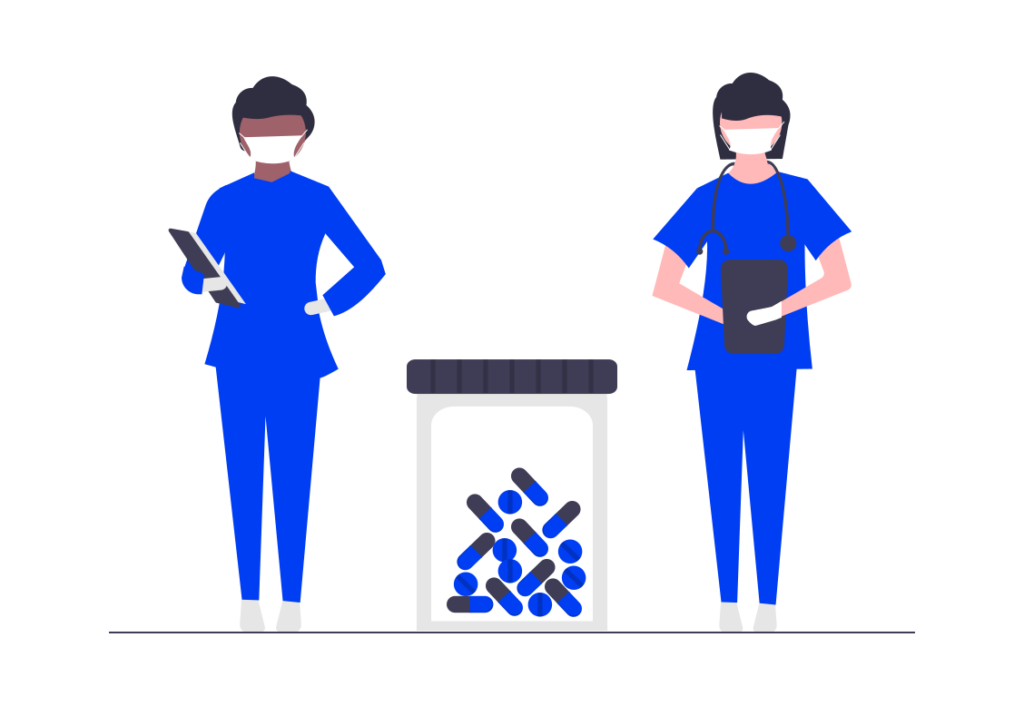
3. AI applications for pharma in nurse training
3.1 Delivering medication education and adherence strategies
3.1.1 Using AI to showcase drug mechanisms and side effects
Pharmaceutical companies have a wealth of information about their products, from the mechanisms of action to potential side effects and patient management strategies. Big data in pharma is a valuable resource that could also benefit nursing students.
The vice-versa is also valid. Nurses witness first-hand the effects of certain pharmaceuticals on their patients. This puts them in a great position to offer valuable feedback to pharma companies, especially if provided with an easy enough AI tool. AI-powered nurse practitioner programs offer a unique way for pharma companies to interact with students and practicing nurses and exchange information in an engaging and effective manner.
For example, nursing schools can employ an AI-driven platform that includes interactive modules to demonstrate how a drug works at the molecular level, showing its interaction with various receptors in the body. These modules could also include information on potential side effects, with AI providing personalized learning paths based on the nurse’s knowledge level and learning preferences.
They can skip to content that is new to them and of most interest. This not only helps nurses understand the products they are administering but also equips them with the knowledge to educate their patients effectively, increasing the treatment adherence for your drug.
3.1.2 Equipping nurses with communication tools for patient education
Effective patient education is a crucial aspect of nursing, particularly when it comes to medication adherence. AI can support nurses in this role by providing them with the tools and resources they need to communicate complex information to patients in a way that is easy to understand.
An AI algorithm could automatically generate patient-friendly explanations of how the medication works, why it is essential to take it as prescribed, and what potential side effects to watch for. Videos, animations, or illustrated schemas of how the drug interacts with the body and the patient’s particular condition can help patients better understand the importance of following their treatment as prescribed.
3.2 Supporting nurses in telehealth and remote care settings
3.2.1 Integrating AI for virtual patient consultations and triage
Telehealth and remote care have become increasingly important, especially after the COVID-19 pandemic. We got used to physicians using telehealth to offer remote consultations via various conference apps. But in many cases, the guidance that a patient needs falls under the nurse’s area of care.
Imagine how much time doctors and patients would save if AI could support nurses by facilitating virtual patient consultations and triage. No more waiting for days (even months) for a doctor’s appointment to get a simple answer that the nurse could provide much faster.
Using Artificial Intelligence in nursing could provide decision-support tools that help nurses assess symptoms, prioritize care, and recommend appropriate treatments much faster and with a higher degree of certainty. These tools can analyze patient data in real-time, build predictive models, and help nurses make informed decisions without face-to-face interaction. This improves the quality of care and increases efficiency, allowing nurses to manage more patients effectively.
3.2.2 Facilitating effective communication with pharmacists and specialists
Let’s not forget that at the other end of the communication line, there are the pharmacists. In remote care settings but not only, effective communication between nurses, pharmacists, and specialists is crucial for ensuring continuity of care.
In a hospital, time is scarce, nurses have to multitask, and even if the specialist is just two floors away, there is no spare minute to go and talk to them and ask for clarifications or advice. AI can enhance this communication by providing platforms facilitating information sharing and collaboration between healthcare professionals, near or far.
For instance, an AI-powered platform might include a feature that allows nurses to easily share patient data with pharmacists and specialists, receive feedback, and collaborate on treatment plans. This ensures that all healthcare team members are on the same page, reducing the risk of errors and improving patient outcomes.
4. The Positive impact on patient care and pharma engagement
There should be no more doubts by now that integrating AI in nurse education platforms offers significant benefits for both nurses and the pharmaceutical industry. For nurses, these platforms provide personalized, interactive, and efficient learning experiences that enhance their knowledge and skills, ultimately leading to better patient care.
For pharmaceutical companies, AI-driven platforms offer a strategic way to engage with the nursing community, providing value beyond their products and strengthening relationships with healthcare professionals.
AI continues to gain momentum, and nurse education shouldn’t be left out of this phenomenon. As stated at the article’s beginning, nurses represent most of the healthcare workforce. By leveraging AI, pharma companies can ensure that nurses are well-equipped to meet modern healthcare challenges and position themselves as leaders in continuous education.
